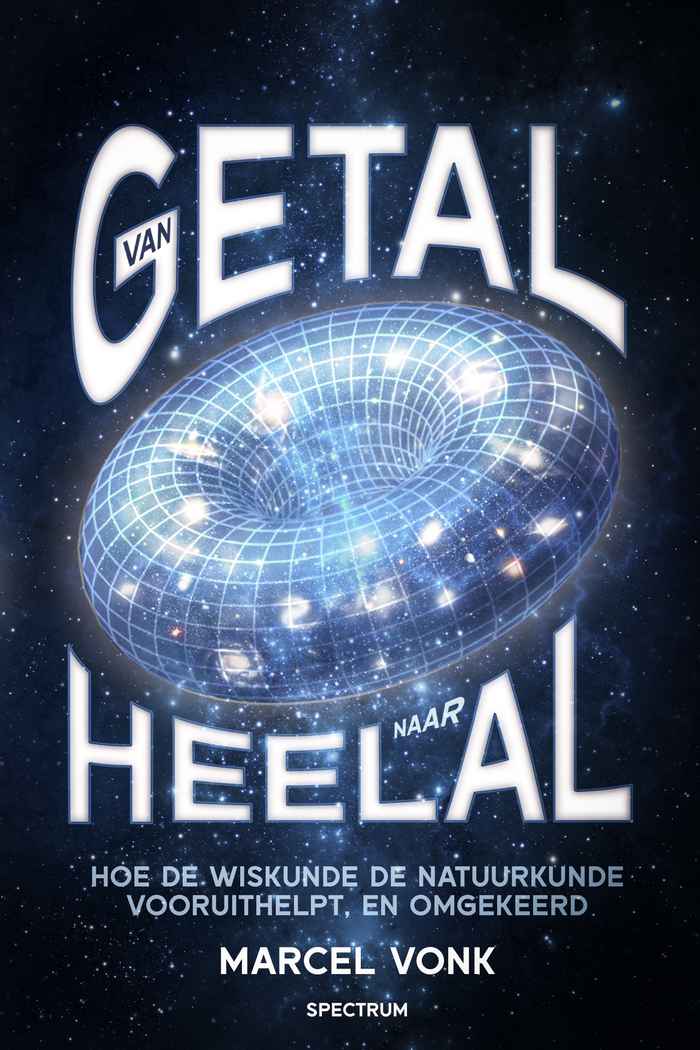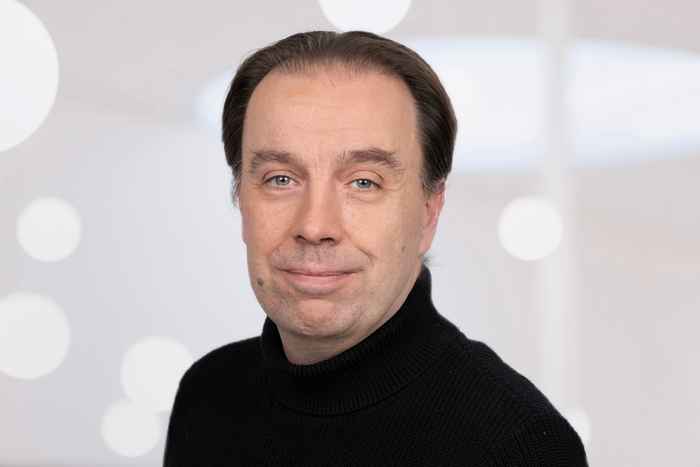Cosmos Book Prize for Marcel Vonk
14 October 2024

Cosmos Book Prize
The Cosmos Book Prize, an initiative of cosmologist Gianfranco Bertone, was already very successful in Italy and was now organized in the Netherlands for the third time, by the magazine New Scientist. High school students get to read popular science books for free, and together elect a prize winner. A professional jury elects a second winner. The project is very successful in getting high school students – including those who may normally not have easy access to such literature – to read popular science books.
Van Getal naar Heelal
In his popular science book Van Getal naar Heelal (Dutch for 'From numbers to the universe') UvA physicist Marcel Vonk describes how modern mathematics helps physics forward - and the other way around.
How many dimensions are there? Is our universe flat or curved? How symmetric are the smallest particles we know? The deepest questions in physics often have a mathematical answer: a number, a shape or a structure. Mathematics is nature's language. A language that people are sometimes scared of – but that fear is not justified. Mathematics shows the beauty of nature, sometimes better than words alone can do. In his book, Vonk shows how mathematical concepts appear in surprising ways in physics – and how those concepts have helped us understand nature.

Award ceremony
This year, five books were nominated for the Cosmos Book Prize: Beter Denken by Marcus du Sautoy, Van Getal naar Heelal by Marcel Vonk, Het Ontstaan van de Tijd by Thomas Hertog, Alles, Iedereen en het Universum by Adam Rutherford and Hannah Fry, and Slim, Slimmer, Slimst by Bennie Mols.
During a festive award ceremony at CREA Amsterdam, Van Getal naar Heelal was chosen as the best popular science book by the student jury. Het Ontstaan van de Tijd by Thomas Hertog won the professional jury prize. Both authors received a cash prize of €1500.